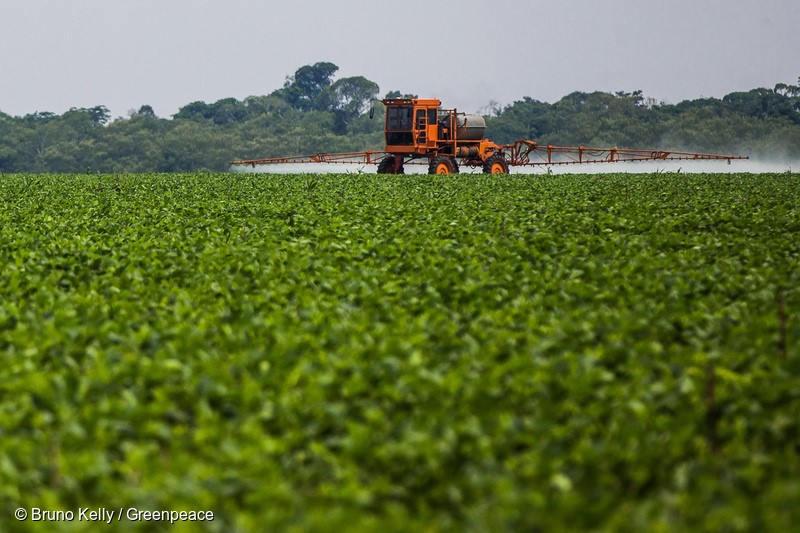At a meeting on 18 and 19 May, EU government representatives are expected to decide whether or not to renew the EU licence of a controversial herbicide known as glyphosate, which scientists have linked to cancer.
After failing to garner enough support from EU governments for a 15-year renewal, the European Commission is now backing continued unrestricted use of glyphosate for at least 9 years [Commission proposal and annexes], after the licence runs out on 30 June this year. This would ignore a cancer warning by the WHO’s cancer agency, the International Agency for Research on Cancer (IARC), as well as concerns raised by ministers in several EU countries [including France and Germany], the European Parliament, and public opposition.
Greenpeace EU food policy director Franziska Achterberg said: “Shortening the glyphosate licence does not protect people and the environment, only significant restrictions or a full ban will do that. What’s more, the Commission can stretch the licence by several years, as it has done with the current glyphosate licence. Greenpeace calls for immediate glyphosate restrictions to limit human exposure.”
In April 2016, the European Parliament called for a ban on glyphosate-based herbicides in private and public green areas, including public parks, playgrounds and gardens. MEPs also called for a prohibition of its use in agricultural fields shortly before harvesting, and where weeds can be controlled with other methods. The Parliament said any new glyphosate licence should be limited to seven years.
In November 2015, the European Food Safety Authority (EFSA) contradicted the IARC glyphosate assessment, concluding that there was no cancer link. The EFSA assessment has come under fire from 96 independent scientists, including several of those involved in the IARC cancer review, as “not supported by the evidence”.
EFSA was also criticised for basing its conclusion on several unpublished industry-funded studies. The Commission has since requested that Monsanto and other glyphosate producers publish the studies. The companies have proposed restricted access in guarded reading rooms, arguing that publication of the studies would violate their commercial interests.
The only restriction set out in the Commission’s proposal for this week’s meeting is on the use of glyphosate in pesticides that also contain a chemical called polyethoxylated (POE)-tallowamine. These products are no longer sold in Germany, one of Europe’s largest pesticides markets, while Monsanto says that it is preparing to phase them out.
The body responsible for cancer classification in Europe, the European Chemicals Agency, is also expected to complete an assessment of health hazards arising from the use of glyphosate, but not before the end of 2017.
EU regulations prohibit the use of herbicides when there is sufficient evidence from animal tests that these substances are linked to cancer. The EU rules are based on IARC criteria.
On 16 May 2016, the FAO /WHO Joint Meeting on Pesticide Residues (JMPR) released an assessment stating that glyphosate is “unlikely to pose a carcinogenic risk to humans from exposure through the diet”. However, Greenpeace warned that at least two experts involved in the JMPR’s evaluation – reportedly the chair and co-chair of the JMPR panel – had links to glyphosate producers, calling into question whether the organisation has ensured the independence of its advice [Greenpeace press release].
For more information, see our March 2016 briefing.
Contacts:
Franziska Achterberg – Greenpeace EU food policy director: +32 (0)498 36 24 03,
Greenpeace EU press desk: +32 (0)2 274 19 11, [email protected]
For breaking news and comment on EU affairs: www.twitter.com/GreenpeaceEU
Greenpeace is an independent global campaigning organisation that acts to change attitudes and behaviour, to protect and conserve the environment and to promote peace. Greenpeace does not accept donations from governments, the EU, businesses or political parties.

